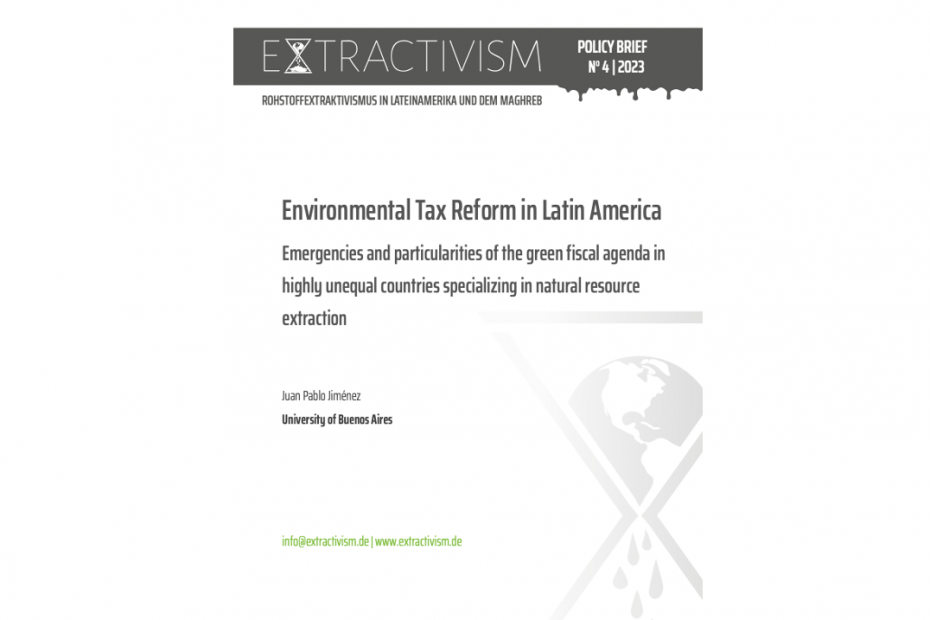Humanity faces one of the most significant challenges in its history. The world must rapidly move toward decarbonized economies that minimize natural resource use to maintain the planet inhabitable for future generations. That means moving from an energy matrix based on fossil fuels to another based on less polluting energies and renewable sources. This transition is costly since it requires adapting consumption and production to a new energy source, generating multiple impacts, including redistributive ones (among social sectors, regions, and generations). These challenges are common to all countries but acquire particular complexities in Latin America and the Caribbean (LAC) due to the region’s productive, economic, and social structure.
This Extractivism Policy Brief 4/2023 shows
- Latin American countries need to implement an agenda of green tax reforms to adapt their current development path and better respond to climate change. The decarbonization of the energy matrix is essential to mitigate future challenges.
- These governments can potentially raise environmentally oriented taxes to generate additional revenues. The objective should be to adapt to the energy transition, attenuate extractivism, and promote better income distribution and growth.
- The design and implementation of green fiscal policy should be gradual and coordinated with other non-fiscal environment policies and aware of national particularities
http://dx.doi.org/doi:10.17170/kobra-202305268121
Download the Extractivism Policy Brief 04/2023 (ENGLISH)
Download the Extractivism Policy Brief 04/2023 (SPANISH)
author: Juan Pablo Jiménez (University of Buenos Aires)



